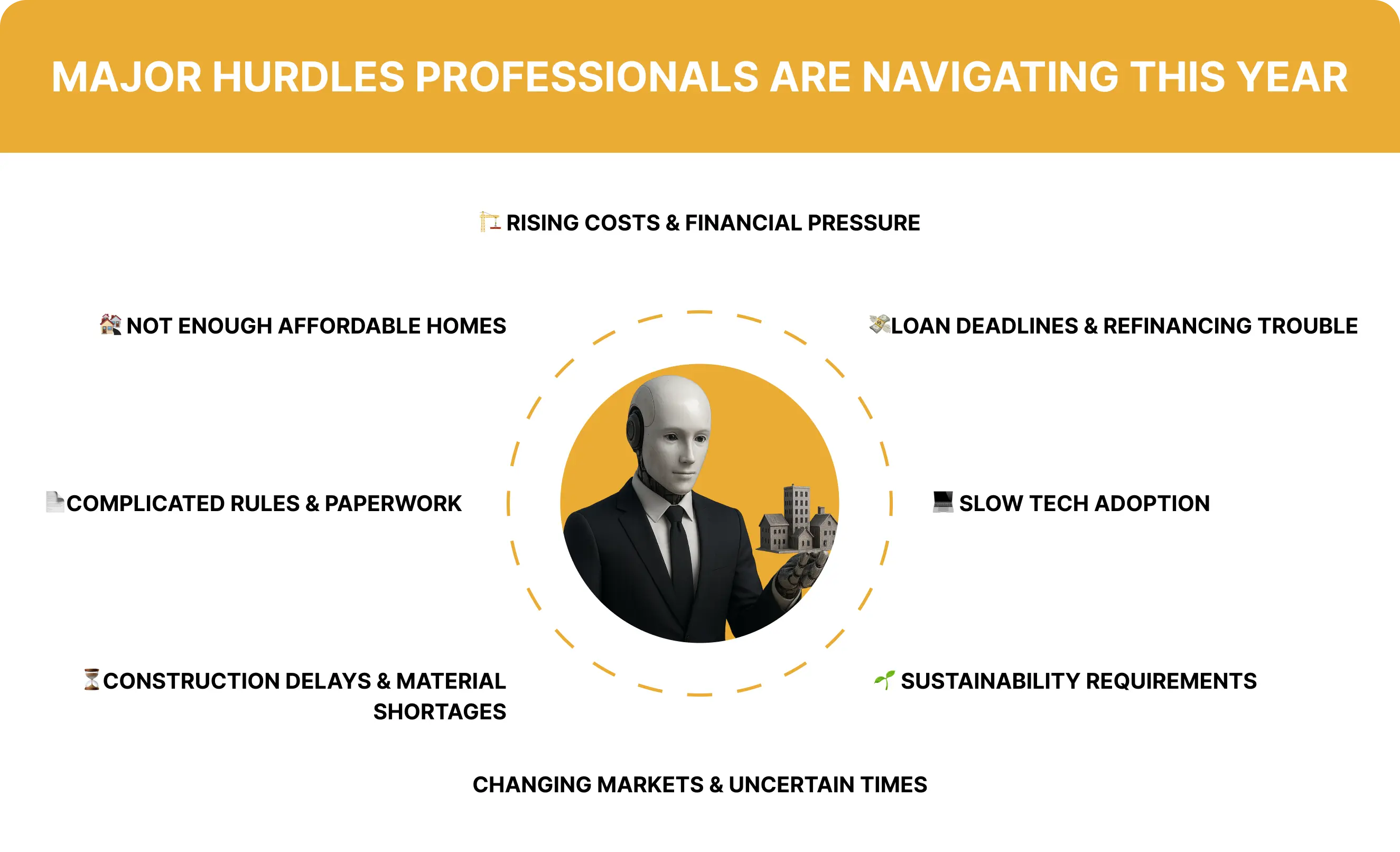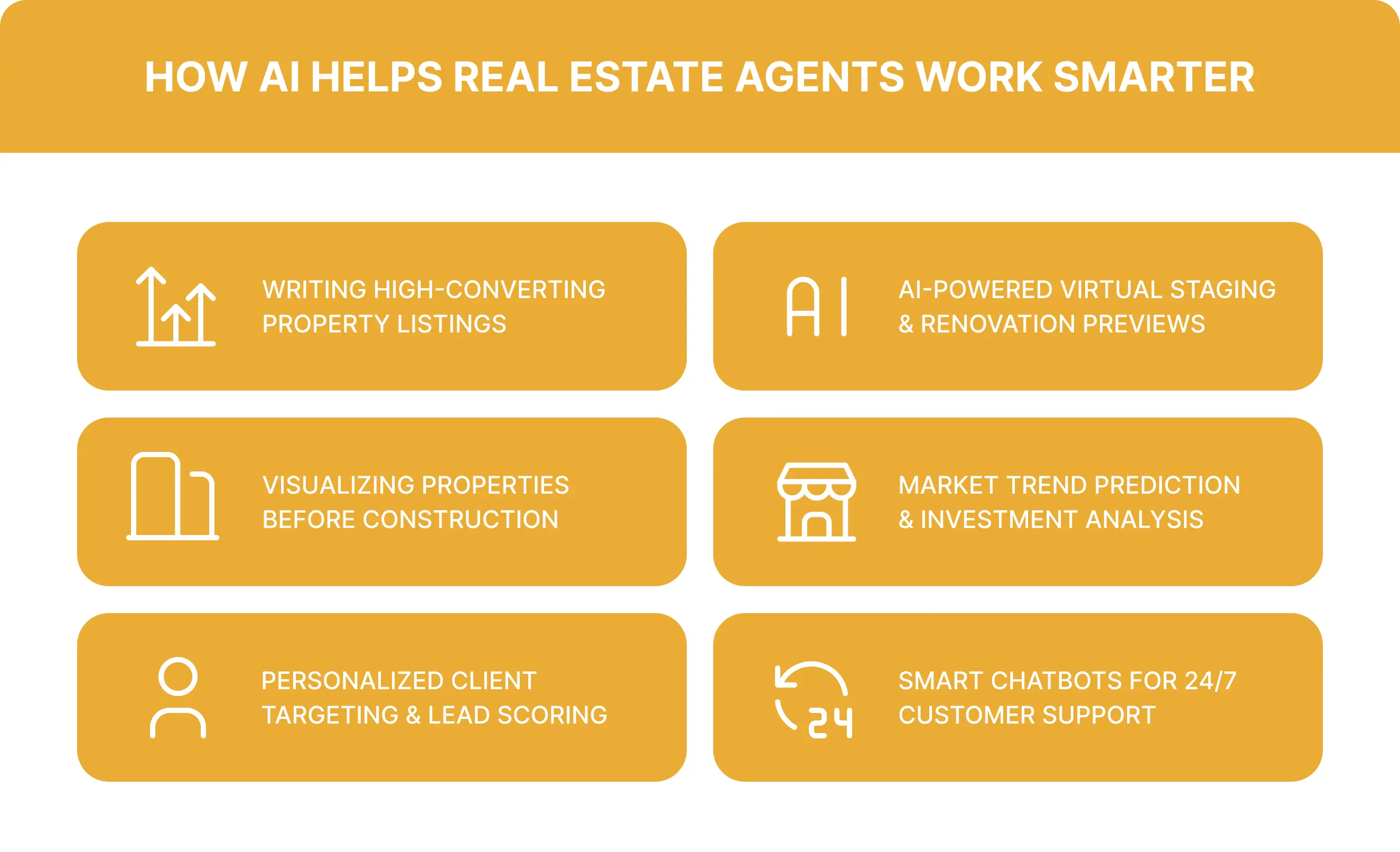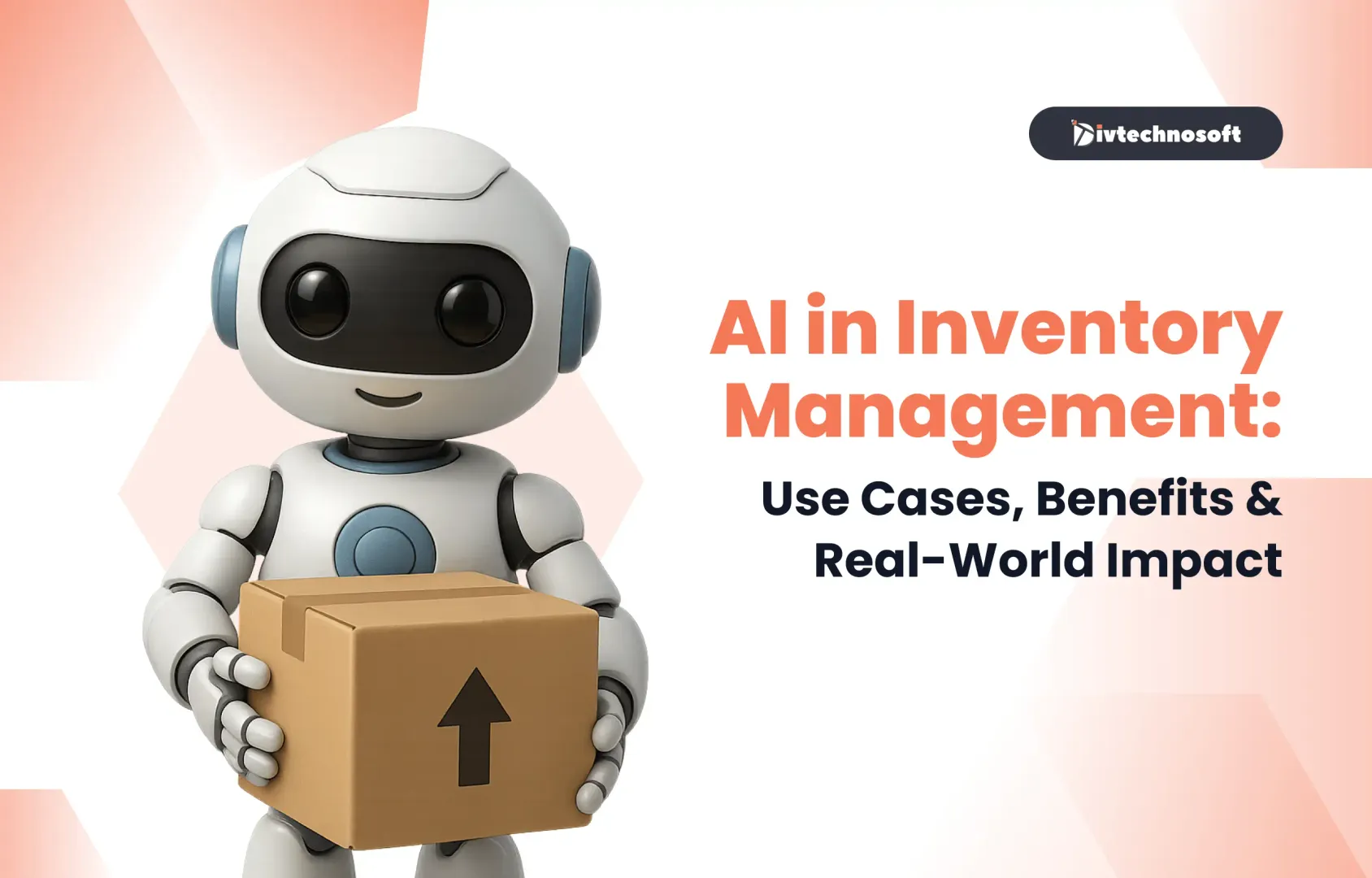Generative AI in Real Estate: Use Cases, Benefits, and What’s Next
Discover how generative AI in real estate is transforming the way agents and investors work. From AI tools for real estate marketing to smarter property matching, learn how automation is shaping the industry in 2025.

The real estate industry is undergoing a major shift, and at the center of it is generative AI. Generative AI in real estate is now a practical part of modern property tech, used by forward-thinking professionals and real estate teams to automate workflows and improve marketing.
In fact, as of 2025, over 61% of real estate professionals in the U.S. have reported using some form of AI tools for real estate to streamline their workflows and enhance marketing. And with the global generative AI market expected to hit $900 billion by 2026, it’s clear that this isn’t a passing trend; it’s the new competitive advantage.
We’re living in a time where data is everywhere, including property values, buyer behavior, market trends, and more. But having access to all that information doesn’t mean much unless you can actually do something with it. That’s where generative AI makes a difference. Whether you’re a broker, investor, or property manager, it helps you turn complex data into smarter decisions, faster actions, and more personalized experiences for your clients.
In this blog, we’ll break down practical use cases of generative AI in real estate, covering everything from automated property listings to AI-driven customer interactions.
Key Challenges in the Real Estate Industry
In 2025, the real estate industry is navigating a tough landscape filled with economic pressure, shifting regulations, and rising expectations. Here’s a breakdown of what the industry is up against this year:

1. Rising Costs & Financial Pressure
With prices going up and loan interest rates staying high, it’s getting more expensive to build new properties or take care of existing ones.
Property owners also have to pay more for things like insurance and repairs, which lowers how much money they make. At the same time, it’s becoming harder for buyers and investors to afford real estate.
2. Not Enough Affordable Homes
There aren’t enough homes, especially affordable ones. In many cities, more people want homes than there are homes available. This means buyers and renters don’t have many choices, and prices are often too high for them. Because of this, real estate agents find it hard to help people find homes they can afford.
3. Complicated Rules & Paperwork
Real estate laws change a lot. There are rules about where you can build and how to protect the environment. Following these rules takes time and money. Now, many records are kept online, and ID checks are stricter. This makes things safer but also harder for builders and agents to manage.
4. Construction Delays & Material Shortages
Builders are still facing delays when it comes to getting materials and equipment on time. These slowdowns can delay projects, increase costs, and make it harder to meet deadlines. When construction takes longer, it affects everything from paying for the project to tenants moving in.
5. Changing Markets & Uncertain Times
Things like a weak economy, political problems, and conflicts in other countries are making the real estate market harder to predict. Bad weather and more insurance claims are also adding to the risk and cost. Because of all this, it’s harder for people to plan for the future or make long-term investments.
6. Loan Deadlines & Refinancing Trouble
A large number of real estate loans need to be paid back by 2026. But because interest rates are high and property prices are going down, getting a new loan to replace the old one is harder. This could force some property owners to sell or risk not being able to pay back their loans.
7. Slow Tech Adoption
Many real estate firms are still behind when it comes to using technology. They often miss important things like lease renewals because their systems are old or not automated. At the same time, tenants now expect smarter buildings with things like digital entry, energy-saving features, and other tech services. Without updating their technology, it’s easy for these companies to fall behind their competitors.
8. Growing Need for Eco-Friendly Buildings
Today, building in an eco-friendly way is not a choice, it’s a requirement. Governments and investors now expect properties to follow new environmental and social rules. But making buildings “green”, like upgrading systems to save energy or meeting ESG (Environmental, Social, and Governance) goals can be expensive.
For many in the real estate industry, it’s hard to manage these costs while still making a good profit.
How Generative AI Solves Real Estate Pain Points
From lead generation to property valuations, real estate professionals face daily challenges. Generative AI is solving these pain points with automation, real-time data, and personalized client experiences.
1. Pain Point: Inaccurate or delayed property valuations
Solution: Accurate Property Valuation with AI
Generative AI processes recent sales data, market trends, and property attributes to instantly deliver accurate valuations, helping agents and buyers make confident pricing decisions without delays.
2. Pain Point: Uncertainty about future market trends
Solution: Predictive Market Insights
AI helps predict property prices, rental income, and changes in neighborhoods, giving investors and developers clear information to make smarter and better-timed decisions.
3. Pain Point: Time-consuming and error-prone paperwork
Solution: Automated Contract and Document Creation
AI can quickly create, check, and improve legal documents like leases and purchase agreements, saving time and helping avoid expensive errors.
4. Pain Point: Missed leads due to slow or no responses
Solution: 24/7 Lead Engagement with AI Chatbots
AI chatbots respond to inquiries instantly, schedule tours, and stay active around the clock, ensuring every lead is engaged and followed up with, even after hours.
5. Pain Point: Irrelevant or generic property recommendations
Solution: Personalized Property Matches
Generative AI analyzes buyer behavior and preferences to suggest homes that truly fit, helping agents connect clients with the right listings faster.
6. Pain Point: Difficulty showcasing properties to remote buyers
Solution: AI-Generated Virtual Tours and Staging
AI makes virtual tours and realistic home images, so buyers can explore and picture the property from anywhere. This boosts interest and cuts down on the need for in-person visits.
7. Pain Point: Missed or delayed investment opportunities
Solution: Smarter Investment Detection
AI looks through huge amounts of data to find hidden property deals, growing areas, and market trends, helping investors find good opportunities before others do.
8. Pain Point: Too much time spent on repetitive admin tasks
Solution: Task Automation for Daily Operations
AI handles everyday tasks like follow-ups, booking appointments, and entering data so real estate teams can focus more on clients, closing deals, and growing their business.
9. Pain Point: Unmanaged risks across the property portfolios
Solution: Real-Time Risk Monitoring
AI tools monitor market conditions, tenant data, and environmental changes to spot problems early, helping managers make smart decisions ahead of time.
How AI Tools for Real Estate Agents Boost Productivity
Here are some of the most useful ways generative AI in real estate is being used today, showing how AI tools for real estate are transforming daily tasks and boosting results.

1. Writing High-Converting Property Listings
Generative AI in real estate can quickly write clear, attractive, and high-performing property listings. These AI tools help highlight key features, use the right tone, and include SEO-friendly keywords to draw more buyers or renters.
2. AI-Powered Virtual Staging & Renovation Previews
In real estate, AI tools for real estate agents can create virtual staging and renovation previews that help buyers picture the space before visiting. This type of real estate automation saves time and boosts interest.
3. Visualizing Properties before Construction
Generative AI can turn floor plans or blueprints into realistic pictures or 3D models. This makes it easier for clients and investors to see what a property will look like before it’s even built.
4. Market Trend Prediction & Investment Analysis
AI tools study market data to help predict price changes, find growing areas, and spot smart investment opportunities. This helps real estate investors make better, more profitable decisions.
5. Personalized Client Targeting & Lead Scoring
Generative AI in real estate can help connect clients with the right properties based on what they like and how they search. It also helps agents spot the most interested buyers, so they can focus on the best leads and close more deals.
6. Smart Chatbots for 24/7 Customer Support
AI chatbots can answer questions, schedule property tours, and stay in touch with clients anytime, even after hours. This helps keep every lead interested and makes the customer experience better.
Benefits of Using Generative AI in Real Estate for Professionals
Generative AI in real estate isn’t just about automation. It’s about helping professionals work smarter, close deals faster, and offer better service to clients. While AI tools handle time-consuming tasks in the background, agents and brokers can focus on what really matters: building relationships and growing their business.

Final Thoughts on Using Generative AI in Real Estate
At the end of the day, generative AI is starting to play a real role in how the real estate industry works. Whether it’s helping with listing descriptions, virtual staging, or giving you a clearer picture of market trends, these tools are making things a bit easier and more efficient for agents and investors alike.
You don’t have to jump in all at once. Start small, test a couple of tools, see what actually helps, and go from there. Even small wins like automating lead responses or using AI in real estate marketing can help you work more efficiently and stay competitive.






